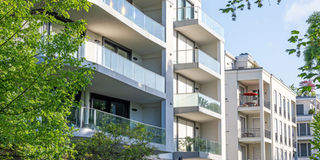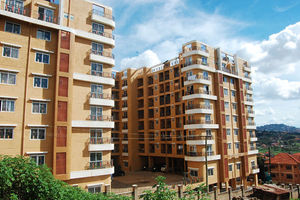
Condos can also be a lucrative investment opportunity for buyers looking to generate rental income or build equity over time.
While condominiums hold promise as a potential solution to address the housing challenges faced by the country, there is a notable reluctance among potential investors to engage in this market. This hesitancy stems from the less-than-flattering reputation that condominiums have garnered over the past few years. The tarnished image of condominiums may be attributed to various factors, including accusations of poor construction quality, inadequate maintenance standards, and management inefficiencies observed in some developments.
Furthermore, publicised legal disputes, financial mismanagement, and regulatory challenges have further eroded trust and confidence in the condominium sector and have understandably dissuaded potential investors from considering condominiums as a viable investment option.
Last year, some condo owners dragged property developers before the Inspector General of Government (IGG) Betty Kamya Turwomwe accusing the latter of selling them condos with several defects, ranging from structural to managerial.
One of the condo owners, John Paul Okwir cited problems with the block’s roofs and a potentially compromised foundation. He said the occupants’ efforts to get the property developer to rectify this situation had been consistently rebuffed because he claimed the warranty had elapsed.
Popularity
Regardless, condominium societies continue to grow in number according to Annet Babigamba. Babigamba, the director of sales and marketing at Universal Multipurpose Enterprises, attributes their popularity to their change of strategy.
“In the last 10 years, the condo sector has managed to revise its strategy and has returned to the market with different concepts such as low cost, luxury, and affordable,” she says.
Condominiums Babigamba believes represent the future of real estate, primarily due to their broad appeal which renders them a highly lucrative investment. In light of Uganda’s growing population and the increasingly constrained availability of land resources, Babigamba highlights the inevitable shift towards vertical construction. Within this evolving landscape, condominiums are poised to excel.
As urban areas become more densely populated, the demand for housing will intensify, driving the necessity for vertical development solutions such as condominiums. This trend aligns with the global trajectory observed in many burgeoning cities worldwide, where the vertical expansion of urban infrastructure has become imperative in the face of limited horizontal space.
Therefore, Babigamba’s assertion underscores the strategic significance of condominiums in addressing the evolving needs of Uganda’s real estate market amidst the challenges posed by population growth and land scarcity.
“Condominiums hold a universal appeal, catering to individuals across all age demographics; from the young professionals seeking high-quality living spaces close to their workplaces, as well as retirees in search of investment opportunities with promising returns,” she observes.
This versatility ensures a wide demand for condominiums, making them an attractive option for both personal residence and financial investment alike.

Annet Babigamba the director of sales and marketing at Universal Multipurpose Enterprises, shows one of the projects under construction. PHOTO/ESTHER BRIDGET NAKALYA.
The appeal
Their appeal lies in the features that are unique to them. For instance, condo complexes often boast many amenities, including swimming pools, fitness centres, clubhouses, tennis courts, barbecue areas, and even on-site shops or restaurants. These amenities make them ideal for busy people who do not want to leave their neighbourhoods to seek these services or the elderly with limited mobility.
One of the most attractive aspects of condo living is the reduced maintenance burden. Unlike owning a single-family home, where homeowners are responsible for maintaining the entire property, condo owners typically only need to worry about maintaining the interior of their unit. The condo association takes care of common area maintenance, landscaping, exterior repairs, and sometimes even utilities such as water and sewer. This, however, is still a bone of contention in Uganda as property developers and condo owners accuse each other of mishandling the responsibility.
“In dealing with these complaints, we need to separate issues. What should the developer be blamed for? What should government agencies be blamed for? When should poor maintenance or usage be blamed?” Harold Turigye the Company Secretary for Comfort Homes tries to analyse the poor management and maintenance issue that has continually plagued condo property developers.
Challenges
Babigamba acknowledges that property developers have faced challenges explaining the purpose of management fees to clients.
“We have encountered instances where clients failed to embrace the concept of paying management fees,” she admits.
In response, they have adopted a proactive approach, embedding the fee structure within the contractual agreements at the marketing stage.
“Before the handover process, we make it a point to educate our clients about these fees,” she emphasizes.
The fees are intricately tied to various factors such as the number of bedrooms and the array of amenities available. Ranging between Shs130,000 to Shs250,000, these maintenance fees can be paid either every six months in advance or every quarter.
Babigamba says maintenance fees are indispensable to sustaining the condo’s essential services. By defining the specific areas where the maintenance fees are spent, residents contribute eagerly, fostering a cooperative and harmonious living environment within the condominium complex.
Furthermore, to ensure utmost transparency and legal adherence, these fees are not only clearly outlined within the sales agreements but also enshrined within the condominium law. Introducing these fees into both legal frameworks underscores their legitimacy and necessity, thus fostering greater understanding and compliance among their clientele.
However, it is important to note that the maintenance fees are not set in stone. Instead, they are subject to negotiation between the homeowners association and the property managers. This collaborative approach ensures that the fees reflect the preferences and financial capabilities of the residents. Furthermore, while the maintenance fees cover the general upkeep of the condominium complex, individual condo owners are typically responsible for any internal repair costs within their units. This arrangement encourages homeowners to maintain their properties and ensures a degree of autonomy over their living spaces.
If a defect or issue arises that can be attributed to the developer’s oversight or faulty construction, the responsibility for rectifying the problem may fall on the developer rather than the individual condo owner. This provision helps safeguard the interests of homeowners and ensures accountability in the construction and maintenance of the condominiums.

One of the most attractive aspects of condo living is the reduced maintenance burden.
Understanding cost
Because condos are often situated in prime locations, they offer convenient access to urban amenities and reduce commute times to work. Additionally, in Kampala, condos are built in desirable neighbourhoods such as Bugolobi, Mutungo, Munyonyo, Naalya, Kololo, and Naguru which contribute to the long-term appreciation of property values, making them an attractive investment opportunity.
While the advantageous location of condominiums stands as a major selling point, it also presents a challenge in terms of affordability. Many potential clients are deterred by what they perceive as exorbitant pricing, which detracts from the overall appeal of these properties. However, Babigamba contends that this perspective is often based on a common misconception, as the pricing structure of condominiums is justified when all pertinent variables are considered. Babigamba observes that beyond the initial cost, factors such as location convenience, access to amenities, security provisions, and long-term investment potential contribute to the overall affordability equation.
“Condominium developers focus on prime locations which are quite costly. If you evaluate, the cost of buying land for instance in Ntinda where a decimal goes for Shs20m, (for the required 11 decimals you would need Shs220m) plus construction costs of about Shs300m for a three-bedroom bungalow, the Shs372m you pay for a condo in the same neighbourhood is more than fair,” she says.
Moreover, most condo projects offer flexible payment plans. Several commercial banks offer mortgage financing 70 percent of the money to be paid back in 10 to 15 years.
“There is also an option of getting your money back in case you change your mind about the condo purchase,” Babigamba says.
With all these financing options, condos are ideal for first-time homebuyers or individuals on a tight budget seeking homeownership. This is why condos have a special appeal to those working abroad.
“Before, people in the diaspora relied on relatives to help them with construction and continued management of their investments. Many of them lost their money to dishonest relatives or friends, now their money is safe with a property development firm that can offer them flexible payment options and property management,” says Babigamba.
Protecting yourself
Deo Kalikumutima, a lawyer, says many Ugandans, especially those in the diaspora are eager to invest in the condo sector, yet many who have are unhappy with their investments. To eliminate this issue, Kalikumutima suggests mass sensitisation about condo investment.
“Before buying a condo, do your due diligence. Check the structural integrity, engage architects, engage engineers, and do your part. Government should also intervene to protect these people from unscrupulous industry players,” he says.
Babigamba says the disappointment is sometimes due to unrealistic expectations.
“People expect property developers to give them luxurious finishes but do not want to pay for them. For example, they want tiles imported from Spain and marble worktops for Shs90m, which is unrealistic. They forget that the developers incur the land cost, materials, architectural drawings, and approvals, which people do not consider. However, if one is willing to pay the extra cost for customised finishing, it can be done,” she says.
Babigamba advises young homeowners to put location before luxury.
“The affordable condominiums usually have one bedroom, kitchen, and bathrooms. I always inform my clients that we are selling a location that is affordable, accessible and secure. There is an overwhelming expectation that people want us to give them a Benz at the price of a Vitz. This is the mentality of most young people who watch too many reality TV shows and want a kitchen that can accommodate 20 people, a Jacuzzi in the bathroom at only Shs98m,” she says.
Condos can also be a lucrative investment opportunity for buyers looking to generate rental income or build equity over time.





